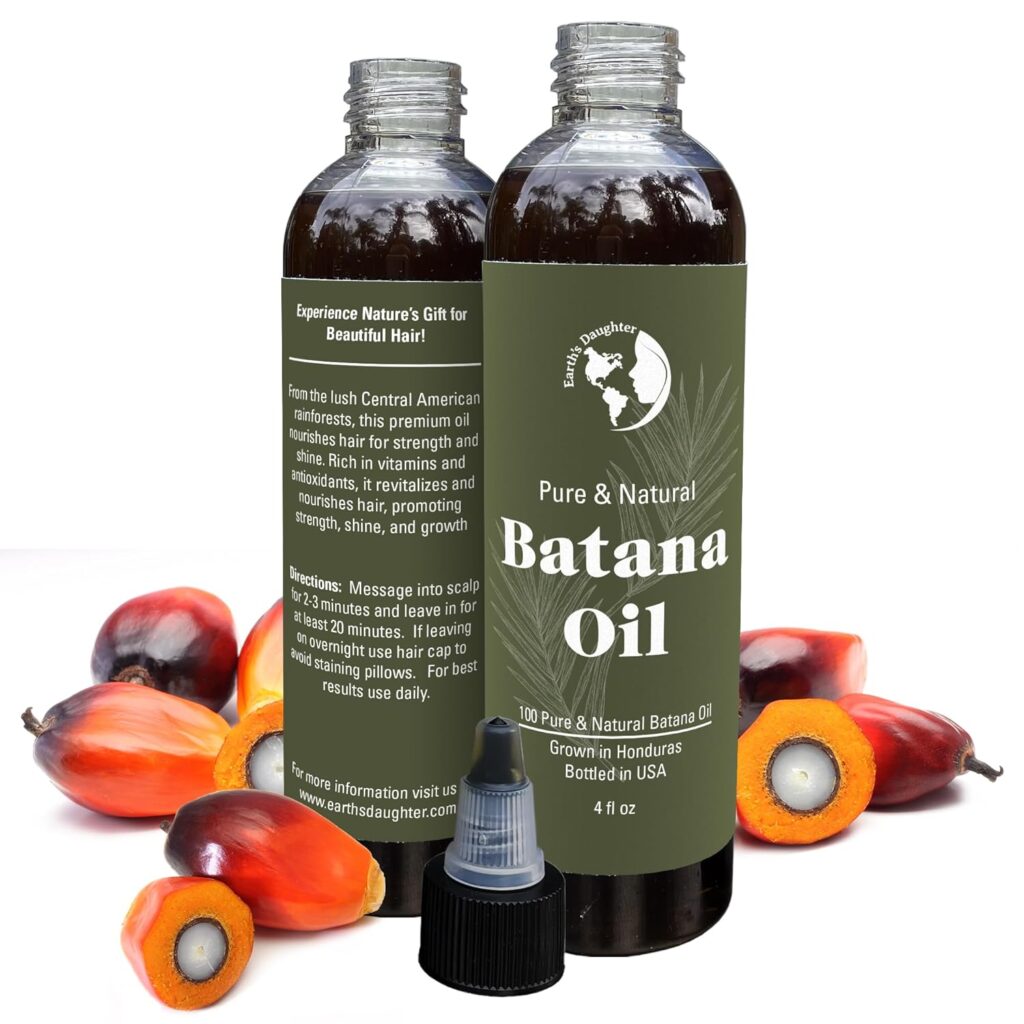An itchy scalp can be a frustrating and uncomfortable experience, often leading to scratching and irritation.
Various factors can contribute to an itchy scalp, including dry skin, allergies, dandruff, scalp infections, and certain skin conditions like eczema or psoriasis.
Understanding the underlying causes is crucial for finding effective support.
In this post, we are going to explore 5 ways to ease an itchy scalp.
Let’s dive in!
What Causes An Itchy Scalp?
An itchy scalp can be caused by a variety of factors, including dryness, dandruff, and allergic reactions to hair products.
Conditions such as eczema or psoriasis can also lead to inflammation and irritation, resulting in an itchy sensation.
Additionally, scalp infections, including fungal and bacterial infections, can contribute to discomfort.
Poor hygiene or excessive product buildup may exacerbate the issue by clogging hair follicles and irritating the scalp.
5 Ways To Ease Itchy Scalp
1. Use Batana Oil
Batana oil is a natural remedy derived from the nuts of the American palm tree, known for its rich content of essential fatty acids and antioxidants.
This oil deeply moisturizes the scalp, helping to alleviate dryness and irritation that often contribute to itching.
To use batana oil, warm a few drops in your palms and massage it gently into your scalp, focusing on any particularly dry areas.
Leave it on for at least 30 minutes or overnight for the best results, then wash your hair as usual.
Out of all the batana oils I’ve tried for itchy scalp, my favorite batana oil is Earth’s Daughter’s Batana Oil.
Earth’s Daughter Batana Oil is an excellent choice for addressing an itchy scalp due to its rich blend of essential fatty acids and Vitamin E, which provide deep nourishment and hydration.
Imported from Honduras and cherished by the Miskito people, this miracle oil not only helps repair and strengthen hair but also stimulates blood circulation in the scalp, promoting overall scalp health.
Its easy application allows for a soothing massage that can alleviate dryness and irritation, making it a valuable addition to your hair care routine.
Simply follow the directions and you’re good to go!
2. Keep Your Scalp Clean
Maintaining a clean scalp is essential for preventing itchiness caused by product buildup, dirt, or sweat.
Regular washing helps remove debris and excess oils that can irritate the skin.
Use a gentle, sulfate-free shampoo to cleanse your scalp without stripping it of its natural oils.
Aim to wash your hair every few days, or more frequently if you use heavy styling products or sweat a lot.
3. Stay Hydrated
Dehydration can lead to dry skin, including an itchy scalp.
Staying well-hydrated helps maintain skin elasticity and moisture levels, reducing the likelihood of irritation.
Aim to drink at least 8 glasses of water a day, and include hydrating foods in your diet, such as fruits and vegetables.
Proper hydration can have a positive impact on your overall skin health, including the scalp.
4. Use a Gentle Exfoliating Scrub
An exfoliating scalp scrub can help remove dead skin cells and product buildup, which can contribute to itchiness.
Regular exfoliation promotes a healthier scalp environment and can reduce irritation.
Consider using a natural exfoliating scrub made with ingredients like sugar or salt mixed with oil.
Gently massage the scrub into your scalp once a week, then rinse thoroughly.
This practice can enhance blood circulation and leave your scalp feeling refreshed.
5. Consider Over-the-Counter Treatments
If your itchy scalp persists despite home remedies, over-the-counter treatments may provide relief.
Many shampoos and topical treatments specifically target dandruff or scalp conditions.
Look for anti-dandruff shampoos containing active ingredients like zinc pyrithione, ketoconazole, or salicylic acid.
These ingredients can help reduce itching and flaking, promoting a healthier scalp.
Support Your Scalp!
An itchy scalp can be uncomfortable, but there are several effective ways to find relief.
By using batana oil to nourish and hydrate your scalp, keeping it clean, staying hydrated, exfoliating gently, and considering over-the-counter treatments, you can address the underlying causes of itchiness.
If symptoms persist, it’s always a good idea to consult with a dermatologist for personalized advice and treatment options.
With the right care, you can restore comfort and health to your scalp.
Affiliate Disclosure
Some of the links on this site are affiliate links. This means that if you click on the link and purchase the item, we may receive an affiliate commission at no extra cost to you. I only recommend products or services that I believe will add value to my readers, however some (not all) do pay us to be on this blog. Your support and theirs helps keep this blog running, and I genuinely appreciate it.
Medical Disclaimer
The information provided on this website is for educational purposes only and is not intended as medical advice. This blog or the writer is not a licensed healthcare professional, and the content should not be used as a substitute for professional medical diagnosis, treatment, or advice. Always consult with your physician or other qualified healthcare provider before starting any new treatment or making any changes to your healthcare routine.
